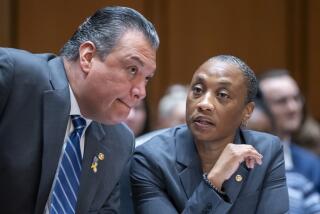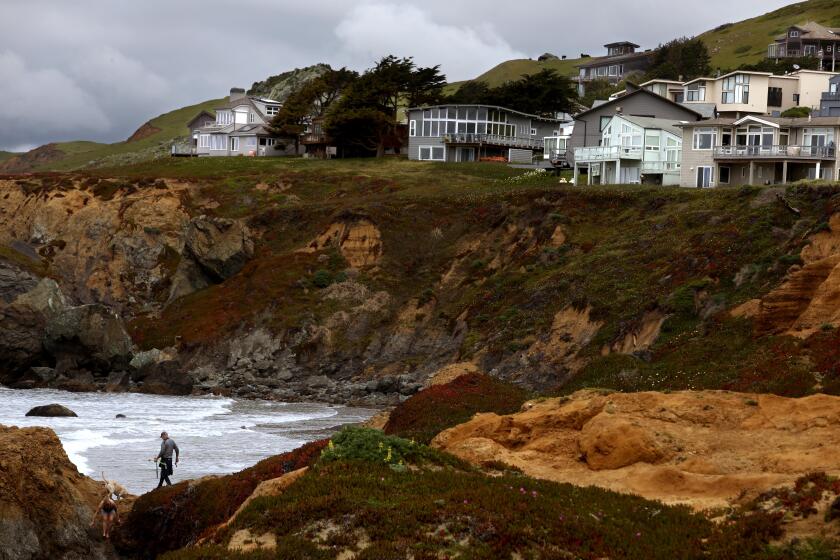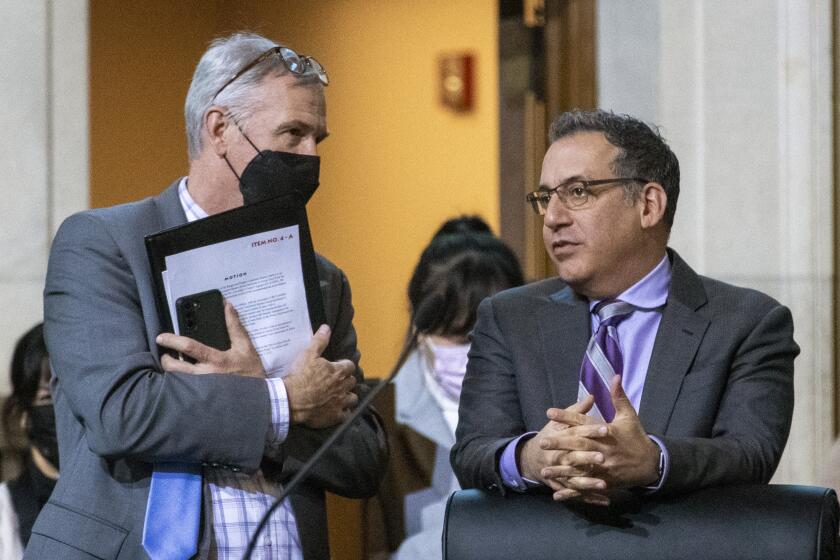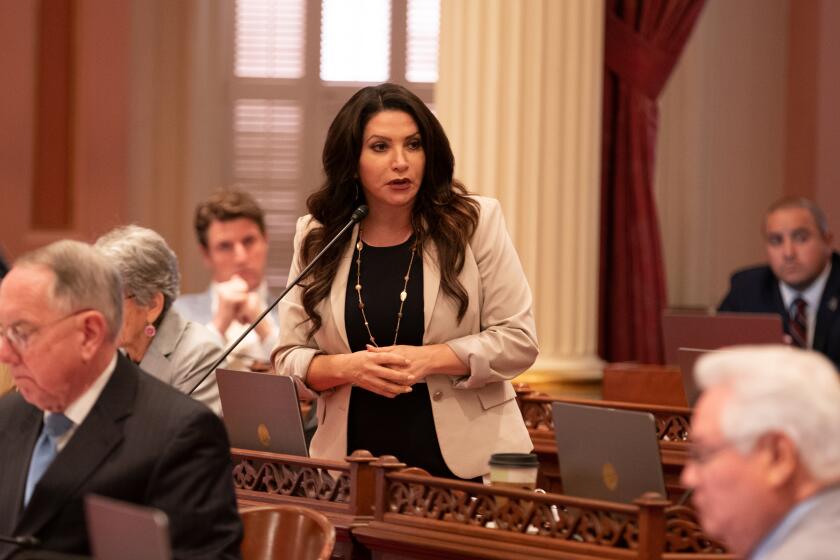Giving Us the Business
Although the cockfight moments at times were entertaining -- at least for those who enjoy the spectacle of adults squawking at one another like bloodied chickens -- one line of argument that kept leaking into the Great Debate last week in Sacramento was depressingly familiar.
Ten years ago, with the economy in recession, Pete Wilson -- then governor, now Arnold Schwarzenegger’s chief ventriloquist -- sought to blame the hard times on a skewed workers’ compensation system and high energy costs that, he claimed, had companies fleeing the state in droves.
“California is a bad product” was Wilson’s battle cry, and it helped him to push through “reforms” that had been sought for a long time by his supporters in the business community.
Now, with the economy again in a trough, some of Gov. Gray Davis’ would-be replacements apparently believe that they can finish him off with the same gambit. They have dragged that old phantom rogue, which is the California-fleeing business, back to center stage.
Here was Arnold Schwarzenegger, early in the rumpus: “We have the worst economic atmosphere, worst business atmosphere in California. And what we see is that businesses are leaving the state and jobs are leaving the state. We have the highest workers’ compensation costs. We have the highest energy costs here.... We have all of those things that drive business away.”
State Sen. Tom McClintock raised the stakes a moment later, suggesting the entire state was rushing for the door: “We’ve had the first net out-migration of domestic population in our state’s history. And a lot of that is going to Arizona and Nevada. Now, that’s a pretty profound development in the history of the state, when families, looking for a better future ... find [it] out in the middle of the Nevada and Arizona deserts.”
Well, for starters, I don’t doubt some Californians are moving out. Western cities like Tucson, Las Vegas and Portland have begun to attract more of us than, in truth, they want. In a sense, they have become the next San Fernando Valley or Orange County -- extreme suburbs of the population factory that is Greater Los Angeles. At the same time, there doesn’t seem to be much cause for concern that California soon will run out of people. Trust me, we’ve still got plenty.
McClintock offered few hard numbers, conceding the evidence of exodus was mostly anecdotal. This was another replay from the early 1990s, when careful attempts to document business flight from California came up empty. Instead, the researchers found that jobs were being lost not because California was a “bad product” but because there was a recession on. And those businesses that had relocated, it was demonstrated in more than one study, had done so for reasons far more complex and deeply rooted than workers’ comp rates.
Yes, costs were high in California then and they are high now -- but this is nothing new. California always has been -- always will be -- a relatively expensive place to do business: You want cheap, set up your fish taco shack in Elmer, Mo.
It also is true that California often has been an incubator for new enterprises that, having gained their legs, leave to carry on elsewhere. Dry-land farmers, aerospace, the modern feedlot industry, certain segments of high tech -- these are but a few examples of the pattern. They comes, and they goes -- a pattern that should continue, unless we truly mess up such main assets as the environment, the university systems, the infrastructure.
Indeed, in this current downturn, it’s far more important to understand, and maintain, the California qualities that caused the high-tech boom to occur here in the first place than to react to the bust with phony alarms and false remedies. California will be fine when the business cycle rotates anew. What can be dangerous, though, are the fixes that arise in the name of staunching “business flight.”
It was, after all, the threat of businesses leaving California because of high energy prices that led, on Wilson’s watch, to the notoriously failed deregulation experiment. Even before it broke, it was clear that this model offered almost nothing for the average consumer -- “the people” that Schwarzenegger claims he wants to champion.
And it was, after all, the threat of businesses fleeing California that led, again on Wilson’s watch, to the plan in the early 1990s to “deregulate” workers’ compensation -- which led to predatory price wars, which resulted in severely overextended insurance companies, which brought widespread bankruptcy to the industry and abandonment of the California market by many insurers, which created, finally, the full-blown workers’ comp crisis that confronts the state today.
Squawk. Squawk. Squawk.
More to Read
Get the L.A. Times Politics newsletter
Deeply reported insights into legislation, politics and policy from Sacramento, Washington and beyond. In your inbox three times per week.
You may occasionally receive promotional content from the Los Angeles Times.







